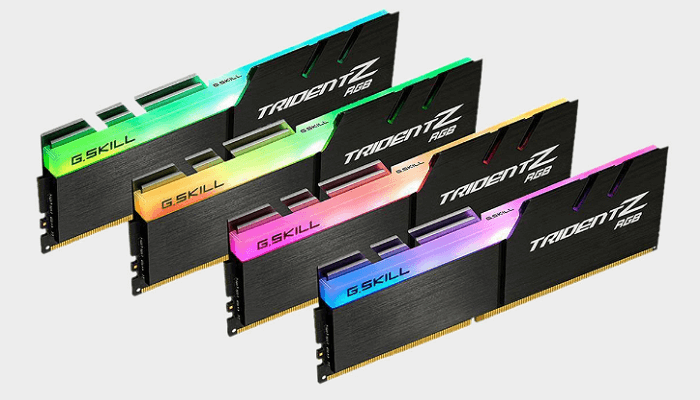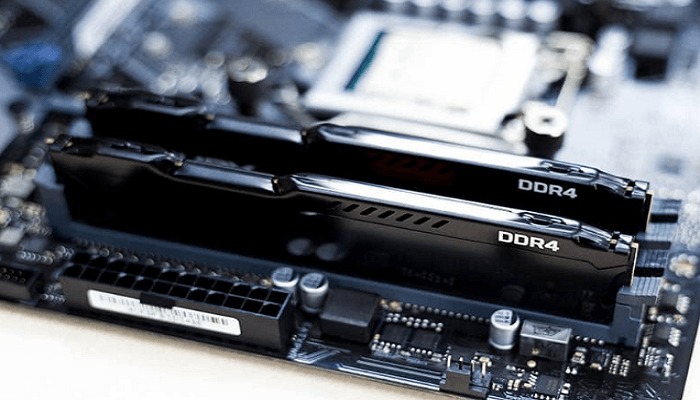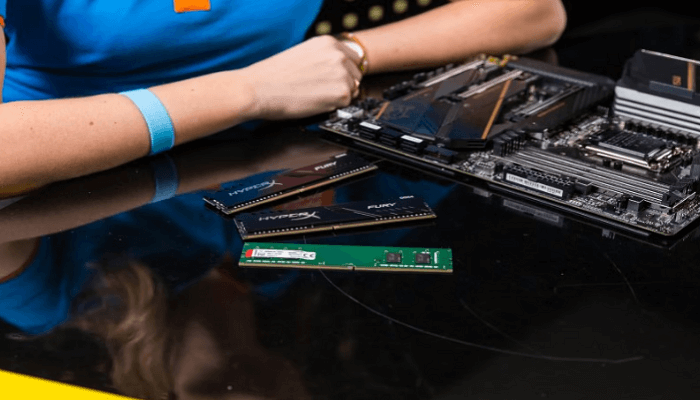Why is RAM So Expensive – Random Access Memory, commonly known as RAM, is one of the most crucial components of a computer system. It is responsible for holding and providing quick access to data that the CPU needs to function efficiently.
RAM is a type of volatile memory, meaning it loses all its stored data when the power supply to the computer is cut off.
The Reasons Behind Rising RAM Prices
In recent years, RAM prices have skyrocketed, making it one of the most expensive computer components.

Here are 11 reasons why RAM has become so expensive:
- Supply and Demand: RAM is a critical component in all types of electronic devices, and the demand for RAM has been increasing exponentially. However, the supply of RAM chips has not kept pace with the demand, leading to price increases.
- Shortage of Raw Materials: RAM manufacturers require specific raw materials to produce RAM chips, such as silicon and copper. The prices of these raw materials have been increasing, leading to a rise in the cost of RAM.
- Complex Manufacturing Process: The manufacturing process for RAM chips is complex and requires specialized equipment and skilled labor, leading to higher production costs.
- Patent Disputes: Patent disputes among RAM manufacturers can cause delays in the production of RAM chips and increase the cost of RAM.
- Rising Labor Costs: As the demand for RAM chips increases, the wages of skilled laborers involved in RAM production have gone up, contributing to the rising costs.
- Exchange Rates: The exchange rates between different countries can affect the cost of RAM. For instance, if the production of RAM chips occurs in a country with a weak currency, the cost of RAM can increase.
- Increase in Smartphone Usage: The use of smartphones has increased, and most smartphones now come with large amounts of RAM. This has put additional pressure on the supply of RAM, leading to a price increase.
- Increase in Gaming: Gaming has become more popular than ever, and most games require large amounts of RAM. As a result, gamers are willing to pay higher prices for RAM.
- Increase in Data Centers: Data centers require a considerable amount of RAM to run effectively. As the demand for data centers has increased, the demand for RAM has also gone up, leading to higher prices.
- COVID-19 Pandemic: The COVID-19 pandemic has disrupted supply chains and manufacturing processes, leading to a shortage of RAM chips and a consequent price increase.
- Natural Disasters: Natural disasters such as earthquakes and floods can disrupt the production of RAM chips and cause a shortage, leading to a price increase.
Is Buying RAM Worth It?
RAM is a crucial component for the optimal functioning of a computer system.

Here are some factors to consider when deciding if buying RAM is worth it:
- If you are running multiple applications simultaneously, having more RAM will help improve your computer’s performance.
- If you are into gaming, having more RAM can help you achieve smoother gameplay and faster loading times.
- If you are a content creator, more RAM will allow you to work with larger files and run more applications simultaneously.
Will RAM Prices Go Down?
RAM prices are subject to fluctuation, and it is challenging to predict if prices will go down in the future.
However, here are some factors that could contribute to a decrease in RAM prices:
- Increase in RAM production capacity
- Decrease in demand due to the saturation of the smartphone and gaming markets
- Stabilization of the supply chain
Does RAM Make A Huge Difference?

RAM plays a vital role in the overall performance of a computer system. The more RAM you have, the more applications you can run simultaneously without experiencing performance issues.
RAM also helps improve the speed of your computer system by reducing the amount of time it takes to access data from the hard drive.
However, the difference in performance that you will experience after adding more RAM to your system depends on the specific tasks you perform.
For instance, if you mostly use your computer for basic tasks such as browsing the internet and checking emails, you may not see a significant improvement in performance after upgrading your RAM.
Is it Worth Installing More RAM?
Upgrading your RAM can be worth it, depending on your specific needs. Here are some factors to consider before deciding to install more RAM:
- What type of tasks do you perform on your computer system?
- How much RAM do you currently have, and how much do you need?
- What is your budget for upgrading your RAM?
If you perform memory-intensive tasks such as video editing or gaming, upgrading your RAM can significantly improve your system’s performance.
If you currently have low amounts of RAM, upgrading to more RAM can help you run multiple applications simultaneously without experiencing performance issues.
Is it Better to Have RAM or Storage?
RAM and storage serve different purposes and are both essential components of a computer system. RAM is responsible for providing quick access to data that the CPU needs to function efficiently.
On the other hand, storage is responsible for storing data even when the power supply to the computer is cut off.
Both RAM and storage are essential, and it is not a question of which one is better. However, when deciding on how much RAM and storage you need for your system, consider the specific tasks you perform and how much data you need to store.
For instance, if you work with large files or perform memory-intensive tasks such as video editing or gaming, having more RAM is essential.
If you need to store large amounts of data such as documents, photos, and videos, having more storage is crucial.
Conclusion: Why is RAM So Expensive
RAM is a critical component of a computer system, and its prices have been on the rise due to several factors, including supply and demand, shortage of raw materials, complex manufacturing processes, and patent disputes.
While upgrading your RAM can improve your system’s performance, the decision to upgrade should be based on your specific needs and budget.
Both RAM and storage are essential components of a computer system, and the amount you need depends on the specific tasks you perform.
RAM prices may fluctuate, and it is challenging to predict whether prices will go down in the future.
However, increasing RAM production capacity, decreasing demand, and stabilizing the supply chain could contribute to a decrease in RAM prices.
Related:
- Why Are Beats So Expensive
- Why is Cox So Expensive
- Why is Premiere Pro So Expensive
- Why Are Motherboards So Expensive
- Why Are Hard Drives So Expensive
- Why Are Mechanical Keyboards So Expensive
- Why is Audible So Expensive
- Why Are PC Parts So Expensive
- Why is Windows So Expensive
- Why Are Graphics Card So Expensive
- Why is Ableton So Expensive
- Why is CASETiFY So Expensive